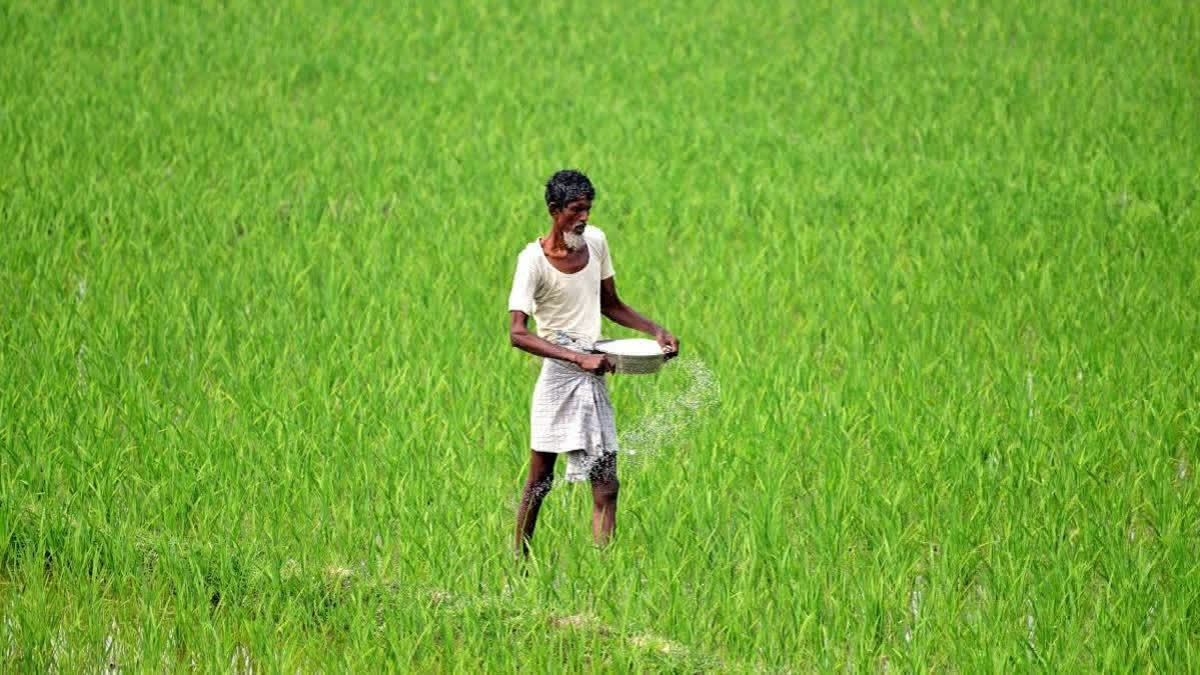New Delhi: The Centre has launched several key schemes to upgrade agricultural technology to improve productivity, sustainability, and farmers’ income.
The Digital Agriculture Mission is a major initiative that leverages technologies like Artificial Intelligence (AI) Big Data, and geospatial data for better crop monitoring, soil management, and weather forecasting. Indian Council of Agricultural Research (ICAR), during the last ten years, has developed 2900 varieties out of which, 2661 varieties are tolerant to one or more biotic and/or abiotic stresses, Minister of State for Agriculture and Farmers Welfare, Bhagirath Choudhary, in a written reply, said in Lok Sabha on Tuesday.
About 156 technologies/machines/process protocols were developed for the production and post-harvest production of agriculture. Technologies related to the animal and fisheries sector were also developed for enhancing productivity of animals, fisheries, aquaculture, diagnostics & vaccines for animal and fish health management, processing and value addition, Choudhary said.
"For increasing awareness and promotion of newly developed technologies, Krishi Vigyan Kendras (KVKs) and State Agricultural Universities (SAUs) conduct trainings, field level demonstration, farmers’ interface meetings, skill development programs among the small and marginal farmers and other stakeholders and making agriculture more efficient and profitable," the Minister of State added.
The government has introduced many initiatives to enhance agricultural marketing such as e-NAM, Kisan Rail and Kisan Udan for improved logistics. The promotion of Farmer Producer Organizations (FPOs) aims to reduce intermediaries and strengthen market access for farmers. Additionally, agri-tech startups and online platforms like AGRI-Bazaar help farmers to connect directly with buyers, ensuring better pricing and increased income, the minister informed.
ICAR recommends soil test-based balanced and integrated nutrient management through conjunctive use of both inorganic and organic sources (manure, biofertilizers etc.) of plant nutrients for judicious use of chemical fertilizers and to improve soil health. All these measures reduce chemical fertilizer use in the country. Also, ICAR suggests judicious use of water through efficient irrigation techniques including micro-irrigation for various crops to save irrigation water substantially, he said.
The Soil Health Card Scheme also promotes the use of soil-appropriate fertilizers to reduce wastage and improve productivity. Further, the Government supports State Governments through the Per Drop More Crop (PDMC) scheme to improve water use efficiency, reduce costs, and enhance farm income. The Government has promoted the Pradhan Mantri Kisan Sampada Yojana, which focuses on enhancing value-added processing, improving the shelf-life of farm products, and linking farmers with agro-industries, added Choudhary.
